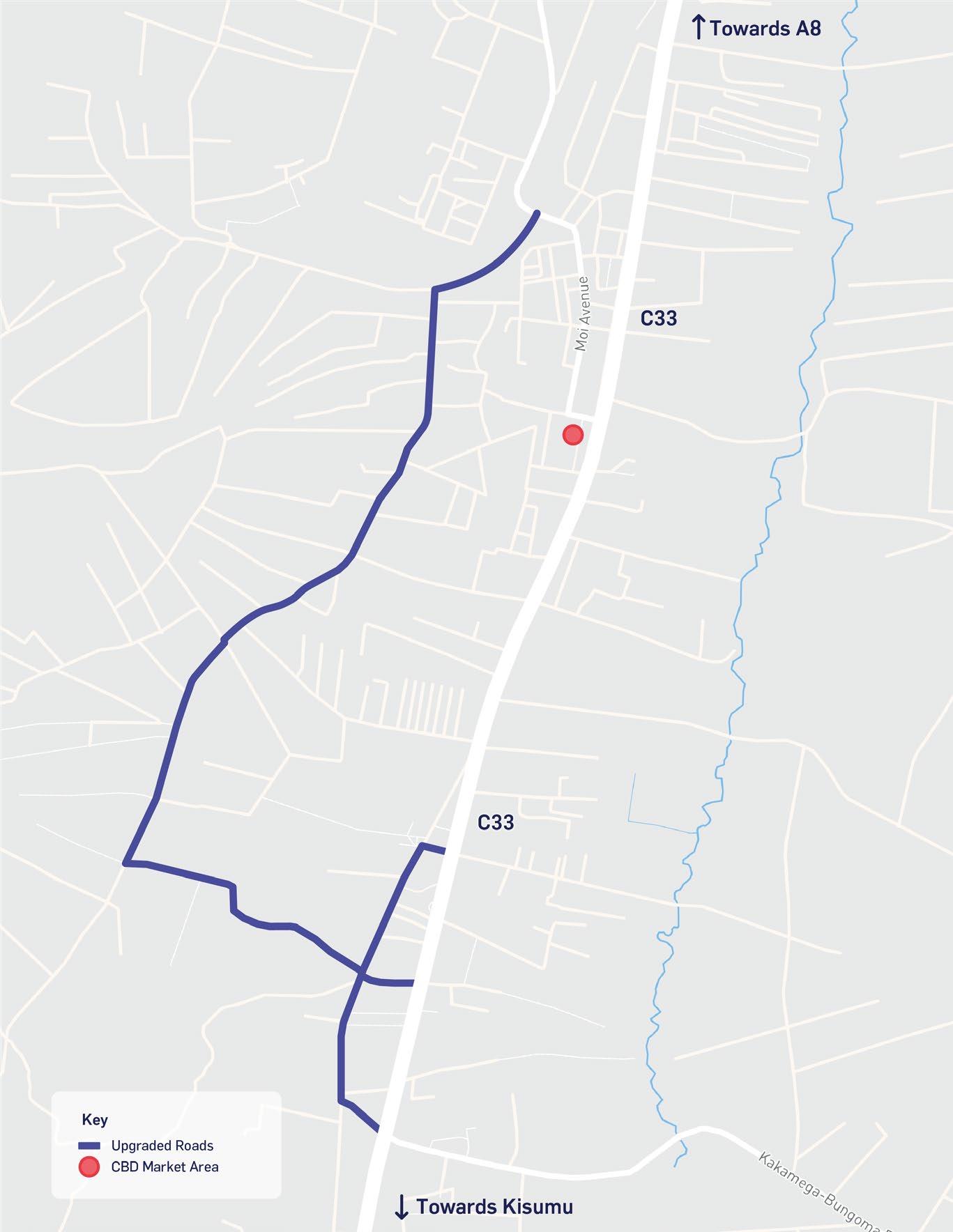
1 minute read
Table 5-1 - Summary Implementation Cost Estimates by Sector
# Project title Project Location Project sub-components
Cross-sectoral/Bungoma-wide climate resilient infrastructure projects
11 Solar PV power generation Focus Area 1 - Bungoma Municipality › A pre-feasibility study to determine preferred potential locations, required size including phasing, technical arrangements including preferred technology, and local network connections, commercial arrangement options › Outline design of solar park › Development of procurement and deployment plan This will include: › Procurement route – best options or engagement with solution providers/ contractors; › Deployment plan – upskilling of local marginalised groups to work as contractors; and › Development of maintenance plan, focusing on upskilling of local marginalised groups to work as maintenance staff › Implementing agency will be the Municipality › They will complete the pre-feasibility study and provide the land to the developer › Private sector › Solar power plants are typically financed using a
Build, Own Operate model › Companies such as Globeleq provide finance and construct utility scale projects, whereas specialist impact investors such as Empower can finance smaller scale projects (refer to case study
12 Renewable energy/energy efficiency project to support Matisi water treatment works Matisi Water Treatment Works, Matisi › Baseline study/audit › Selection of new treatment/pumping equipment › Design of new renewable energy system › Development of procurement and deployment plan › Implementation › Maintenance plan › Nzoia Water and Sanitation company. › Energy Services Companies (ESCOs) for delivery of commercial solutions › IFI/Donor › IFI/Donor finance for energy efficiency/ renewable energy programmes
Implementation agency and stakeholders Potential sources of financing/ funding and delivery mechanisms Total Estimated Costs (KES) Timescale
KES 1,020,000,000 Short-term
KES 45,000,000 Short-term










